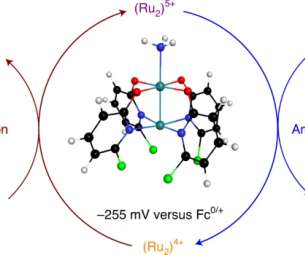University of Wisconsin seeking commercial partners for alkylphenol solvent-based method to convert biomass into furan derivatives for fuels and chemicals
Green Car Congress
AUGUST 28, 2011
The Wisconsin Alumni Research Foundation (WARF) is seeking commercial partners for a novel, cost-effective method developed by University of Wisconsin, Madison researchers for producing furan derivatives such as hydroxymethylfurfural (HMF), furfural, levulinic acid (LA) or γ-valerolactone (GVL) from biomass using alkylphenols as solvents.





































Let's personalize your content